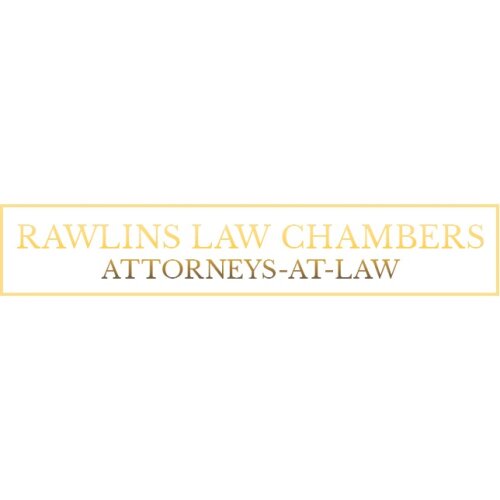Best Native People Lawyers in Bridgetown
Share your needs with us, get contacted by law firms.
Free. Takes 2 min.
List of the best lawyers in Bridgetown, Barbados
About Native People Law in Bridgetown, Barbados
Bridgetown, the capital of Barbados, is steeped in rich cultural history, and its legal framework concerning Native People is intertwined with efforts to preserve cultural heritage and community rights. Native People in Barbados have historically contributed to the island’s cultural tapestry, and legal issues often revolve around the protection of cultural sites, recognition of communal land rights, and the preservation of traditional practices. Legal guidance is crucial in navigating these areas where historical and contemporary rights intersect.
Why You May Need a Lawyer
People may seek legal assistance in various situations related to Native People. Common scenarios include disputes over land ownership or rights, issues involving the preservation of cultural heritage, navigating legal frameworks for traditional practices, and understanding the rights of indigenous communities under national and international law. Lawyers specializing in this field can provide essential guidance and representation in negotiations or court cases where Native People’s rights are at stake.
Local Laws Overview
The legal landscape in Bridgetown regarding Native People is shaped by both local and international influences. Key aspects of the law focus on the protection and recognition of cultural heritage sites, the support of traditional practices, and the safeguarding of communal land rights. Barbados has also shown a commitment to international conventions concerning indigenous rights, influencing local policies and legislative frameworks. Understanding these laws is critical for effectively advocating for Native People’s rights and interests.
Frequently Asked Questions
What defines Native People in Barbados?
Native People in Barbados are generally recognized by their historical roots and cultural continuity within the island, though formal legal definitions may vary depending on the context and legal frameworks in use.
What rights do Native People have regarding land ownership?
Native People may possess communal rights to land traditionally used and inhabited. However, specific rights can vary, and legal advice is recommended to navigate complex land ownership laws.
Are there specific laws protecting the cultural heritage of Native People?
Yes, there are laws aimed at preserving cultural heritage sites, and these have been framed to protect the cultural identity and heritage of Native People in Barbados.
How does international law affect Native People in Barbados?
International conventions and treaties, such as those by the United Nations concerning indigenous rights, often influence local laws and can provide additional legal frameworks for addressing Native People’s issues.
Can Native People practice traditional customs freely?
Generally, there's legal support for the practice of traditional customs, though this might be subject to regulations ensuring public interest and safety.
What is the role of the government in supporting Native People?
The Barbados government supports Native People through policies intended to protect their cultural, social, and economic rights, often aligning with international standards.
How can disputes regarding Native People’s rights be resolved?
Disputes can be addressed through negotiation, mediation, or legal proceedings, often requiring the expertise of lawyers experienced in Native People law.
Are there legal services specifically for Native People?
While there may not be exclusive services, many legal practitioners and firms offer specialties in matters concerning Native People’s rights and interests.
Is prior consultation required for developments affecting Native People’s land?
Consultation processes may be required, especially for developments that could impact recognized Native People’s land, involving both community input and legal guidance.
What are some challenges faced by Native People in Barbados from a legal standpoint?
Challenges can include asserting land rights, protecting cultural sites, balancing traditional practices with modern laws, and ensuring adequate representation in legal processes.
Additional Resources
For those seeking further information or support, valuable resources include the Barbados Museum and Historical Society for cultural insights, the Ministry of Culture for policy-related inquiries, and the Caribbean Development Research Services (CADRES) for research and advocacy support. Legal advice may also be sought from Bar Associations or specialized legal clinics focusing on indigenous rights.
Next Steps
For those needing legal assistance concerning Native People’s issues in Bridgetown, it is advisable to consult a lawyer with expertise in indigenous law. Initial steps might include gathering relevant documentation, understanding the specific legal context of your situation, and reaching out to legal practitioners who can offer strategic advice and representation. Consider consulting community leaders or organizations for additional perspectives and support in navigating these legal systems.
Lawzana helps you find the best lawyers and law firms in Bridgetown through a curated and pre-screened list of qualified legal professionals. Our platform offers rankings and detailed profiles of attorneys and law firms, allowing you to compare based on practice areas, including Native People, experience, and client feedback.
Each profile includes a description of the firm's areas of practice, client reviews, team members and partners, year of establishment, spoken languages, office locations, contact information, social media presence, and any published articles or resources. Most firms on our platform speak English and are experienced in both local and international legal matters.
Get a quote from top-rated law firms in Bridgetown, Barbados — quickly, securely, and without unnecessary hassle.
Disclaimer:
The information provided on this page is for general informational purposes only and does not constitute legal advice. While we strive to ensure the accuracy and relevance of the content, legal information may change over time, and interpretations of the law can vary. You should always consult with a qualified legal professional for advice specific to your situation.
We disclaim all liability for actions taken or not taken based on the content of this page. If you believe any information is incorrect or outdated, please contact us, and we will review and update it where appropriate.








